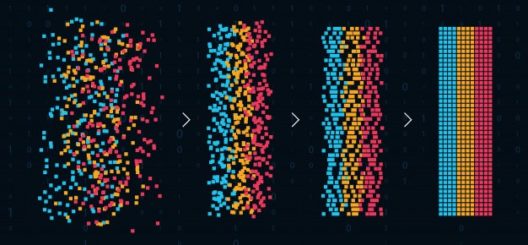Agentic AI Certification Training Course
- 5k Enrolled Learners
- Weekend/Weekday
- Live Class
Pattern Recognition is one of the key features that govern any AI or ML project. The industry of Machine Learning is surely booming and in a good direction. Following pointers will be covered in this article:
Introduction
In today’s world, a lot of different type of data is flowing across systems in order to categorize the data we cannot use traditional programming which has rules that can check some conditions and classify data.
The solution to this problem is Machine Learning, with the help of it we can create a model which can classify different patterns from data. One of the applications of this is the classification of spam or non-spam data.
Machine Learning
In Machine Learning we cannot expect a model to be 100% accurate but the predictions should be as close as possible so that it can be categorized in a particular category. In Machine Learning the model is created based on some algorithms which learn from the data provided to make predictions.

The model builds on statistics. Machine learning takes some data to analyze it and automatically create some model which can predict things. In order to get good predictions from a model, we need to provide data that has different characteristics so that the algorithms will understand different patterns which may exist in a given problem.
Pattern Recognition
Patterns are recognized by the help of algorithms used in Machine Learning. Recognizing patterns is the process of classifying the data based on the model that is created by training data, which then detects patterns and characteristics from the patterns.

Pattern recognition is the process which can detect different categories and get information about particular data. Some of the applications of patterns recognition are voice recognition, weather forecast, object detection in images, etc.
Features of Pattern Recognition:
Pattern recognition learns from the data.
Automatically recognize patterns even when partially visible.
The pattern should be recognized from different angles and shapes.
Training and Learning Models in Pattern Recognition
Firstly the data should be divided into to set i.e training and testing set. Learning from the data can tell how the predictions of the system are depending on the data provided as well which algorithm suits well for specific data, this is a very important phase. As data is divided into two categories we can use training data to train an algorithm and testing data is used to test model, as already said the data should be diverse training and testing data should be different.

So we divide data into two sets normally we divide data in which 70% of data is used for training the model, algorithms extract the important patterns from the provided data and creates a model. Testing set contains 30% of whole data and it is then used to verify the performance of the model i.e how accurately is the model predicting the results.
Applications of Pattern Recognition
Computer vision: Objects in images can be recognized with the help of pattern recognition which can extract certain patterns from image or video which can be used in face recognition, farming tech, etc.
Civil administration: surveillance and traffic analysis systems to identify objects such as a car.
Engineering: Speech recognition is widely used in systems such as Alexa, Siri, and Google Now.
Geology: Rocks recognition, it helps geologist to detect rocks.
Speech Recognition: In speech recognition, words are treated as a pattern and is widely used in the speech recognition algorithm.
Fingerprint Scanning: In fingerprint recognition, pattern recognition is widely used to identify a person one of the application to track attendance in organizations.
Advantages of Pattern Recognition
Difference Between Machine Learning and Pattern Recognition
ML is an aspect which learns from the data without explicitly programmed, which may be iterative in nature and becomes accurate as it keeps performing tasks. ML is a form of pattern recognition which is basically the idea of training machines to recognize patterns and apply them to practical problems. ML is a feature which can learn from data and iteratively keep updating itself to perform better but, Pattern recognition does not learn problems but, it can be coded to learn patterns. Pattern recognition is defined as data classification based on the statistical information gained from patterns.

Pattern recognition plays an important role in the task which machine learning is trying to achieve. Similarly, as humans learn by recognizing patterns. Patterns vary from visual patterns, sound patterns, signals, weather data, etc. ML model can be developed to understand patterns using statistical analysis which can classify data further. The results might be a probable value or depend on the likelihood of the occurrence of data.
Check out this Artificial Intelligence Course by Edureka to upgrade your AI skills to the next level.
Summary
In this article, we took a look at what is machine learning and pattern recognition, how they work together in order to create an accurate and efficient model. We explored different features of pattern recognition. Also, how the data is divided into a training set and testing set and how that can be used to create an efficient model which could provide accurate predictions. What are the applications of them and how they differ from each other is discussed in brief?
Edureka’s Machine Learning Engineer Masters Program makes you proficient in techniques like Supervised Learning, Unsupervised Learning and Natural Language Processing. It includes training on the latest advancements and technical approaches in Artificial Intelligence & Machine Learning such as Deep Learning, Graphical Models and Reinforcement Learning.
If you have any queries related to this article please leave them in the comments section below and we will revert as soon as possible.
 Thank you for registering Join Edureka Meetup community for 100+ Free Webinars each month JOIN MEETUP GROUP
Thank you for registering Join Edureka Meetup community for 100+ Free Webinars each month JOIN MEETUP GROUPedureka.co